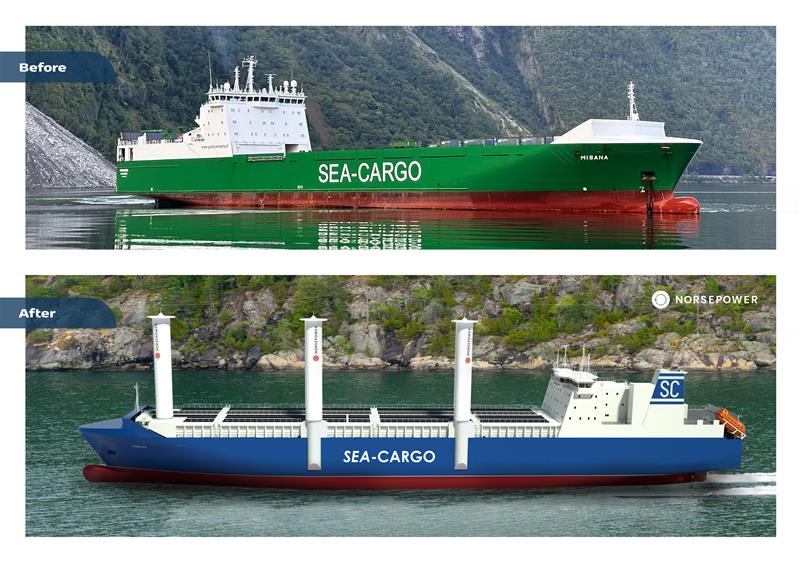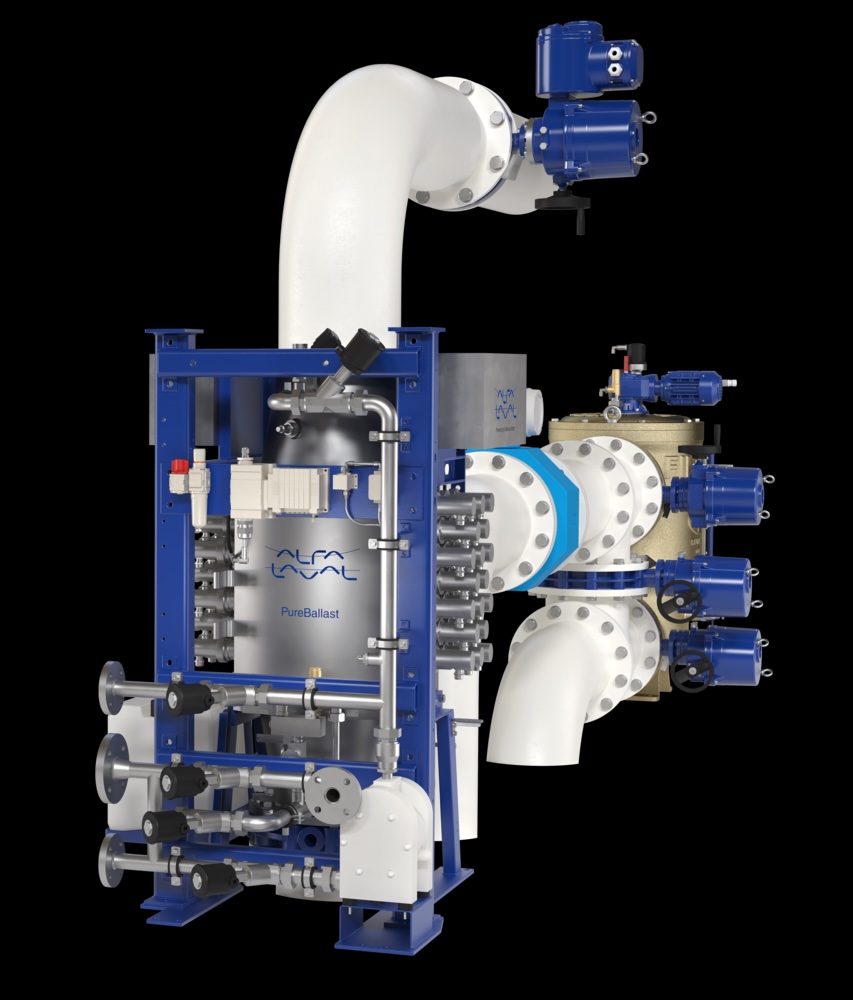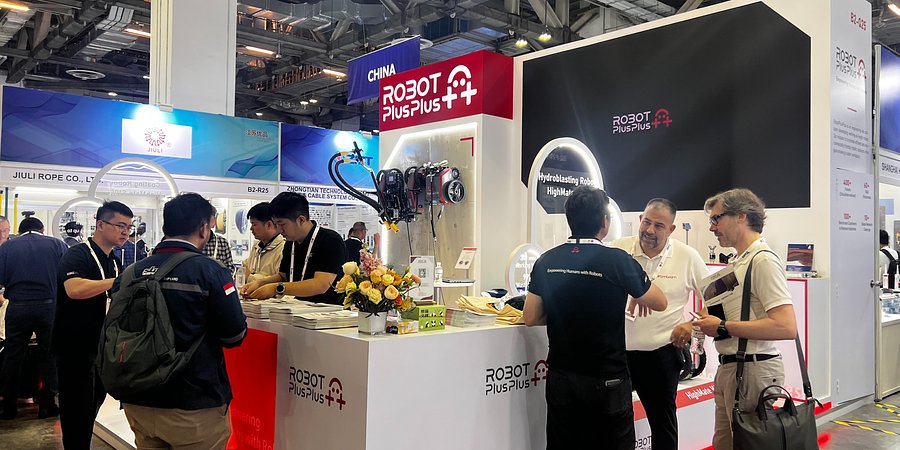HE Leif Trana, Ambassador of the Kingdom of Norway to Singapore, Arne Fredheim, Research Director of SINTEF Ocean, Dr Sanjay Kuttan, Chief Strategy Officer of GCMD and Prof Lynn Loo, Chief Executive Officer of GCMD.
Reducing energy consumption and replacing fossil with renewable fuels within the maritime sector is a large and global challenge. Governments, industries and research organisations globally have been actively exploring green solutions. In order to further accelerate innovation and transition, collaboration across the globe is key.
“These important long-term commitments build on mutual goals, challenges and a history of good collaboration between the maritime sectors in Norway and Singapore,” said Arne Fredheim, Research Director in SINTEF Ocean. “The dialogue and exchange of knowledge with GCMD have been ongoing for some years already, and the match between the two organisations has proven so fruitful that we now want to strengthen the collaboration through joint projects.”
“We are excited to welcome SINTEF Ocean as a Knowledge partner and work more closely with SINTEF Ocean”, said Dr Sanjay Kuttan, Chief Strategy Officer in GCMD. “Collaboration is crucial in addressing the energy transition, especially within the diverse maritime industry. The challenges ahead to achieve net zero are too significant for any single organisation to tackle alone. As one of the overseas partners under the FME MarTrans, we are looking forward to refining problem statements and co-ideating projects to accelerate maritime decarbonisation.”
FME MarTrans is being launched
FME stands for research centre for environmentally friendly energy, and FME Maritime Energy Transition (MarTrans) is an 8-year collaborative project with 65 partners from the maritime industry and research environment. With total funding from the Research Council of Norway and the industrial partners of over NOK 300 million, this will be one of the world’s largest maritime research programs when it kicks off in January 2025.
Norwegian shipowners are heavily involved, and a total of 18 shipping companies with around 450 ships in operation participating in the centre. Norway has the world’s fifth largest shipping fleet, its decarbonisation of which can make a marked difference to global emissions from the sector. In order to do so, FME MarTrans will focus on four main challenges:
· Environmentally friendly fuel will be expensive and scarce. Consequently, consumption must be drastically reduced through improved energy-efficiency.
· In order to be able to use the new energy carriers in a safe and efficient way, the energy systems on board must be further developed.
· Making green fuels available requires the development of supply chains and new port infrastructure.
· A sustainable transition requires new technology to be supported with knowledge in business models, environmental impact, regulations and energy system integration.
“We are really glad to have GCMD onboard as full-worthy partner of FME MarTrans,” said Trond Vikan Johnsen, Centre Director in SINTEF Ocean. “GCMD and MarTrans are addressing the same challenges, with complementary perspectives and type of activities. Sharing of knowledge and coordination of actions will make both centres even more effectful.”
GCMD is helping to decarbonise the maritime sector through pilots and trials
Since its establishment in 2021, GCMD has been supporting the decarbonisation of the maritime industry through pilots and trials.
Recently, GCMD achieved a significant milestone by successfully conducting ammonia transfers that simulated bunkering operations in the Pilbara region. This achievement will help ready the ecosystem for using ammonia as a marine fuel when ammonia-fuelled vessels become available.
GCMD is also exploring a series of pilots to scale the adoption of energy efficiency technologies (EETs) in shipping through Pay-As-You-Save (PAYS), a third-party performance based financing model that shares risks and rewards with stakeholders already deployed in other sectors. PAYS leverages transparent data sharing, allowing stakeholders to verify fuel savings and attribute them to specific technologies. Unlocking the link between performance and financing should spur adoption of EETs and accelerate maritime decarbonisation.
Beyond addressing adoption barriers for ammonia as a marine fuel and EETs, GCMD is also working on initiatives to unlock the carbon value chain and develop an assurance framework for drop-in green fuels.
source: GCMD
The opinions expressed herein are the author's and not necessarily those of The Xinde Marine News.
Please Contact Us at:
media@xindemarine.com


 Sea-Cargo and Norsepower continue their collaborati
Sea-Cargo and Norsepower continue their collaborati  Alfa Laval expands its portfolio with ultrasonic an
Alfa Laval expands its portfolio with ultrasonic an  Alfa Laval PureBallast 3 Ultra secures orders from
Alfa Laval PureBallast 3 Ultra secures orders from  RobotPlusPlus Wows Maritime Professionals with Carg
RobotPlusPlus Wows Maritime Professionals with Carg  Alfa Laval secures first contract for ammonia fuel
Alfa Laval secures first contract for ammonia fuel  GNV Tests RINA’s Machine Learning and Predictive
GNV Tests RINA’s Machine Learning and Predictive